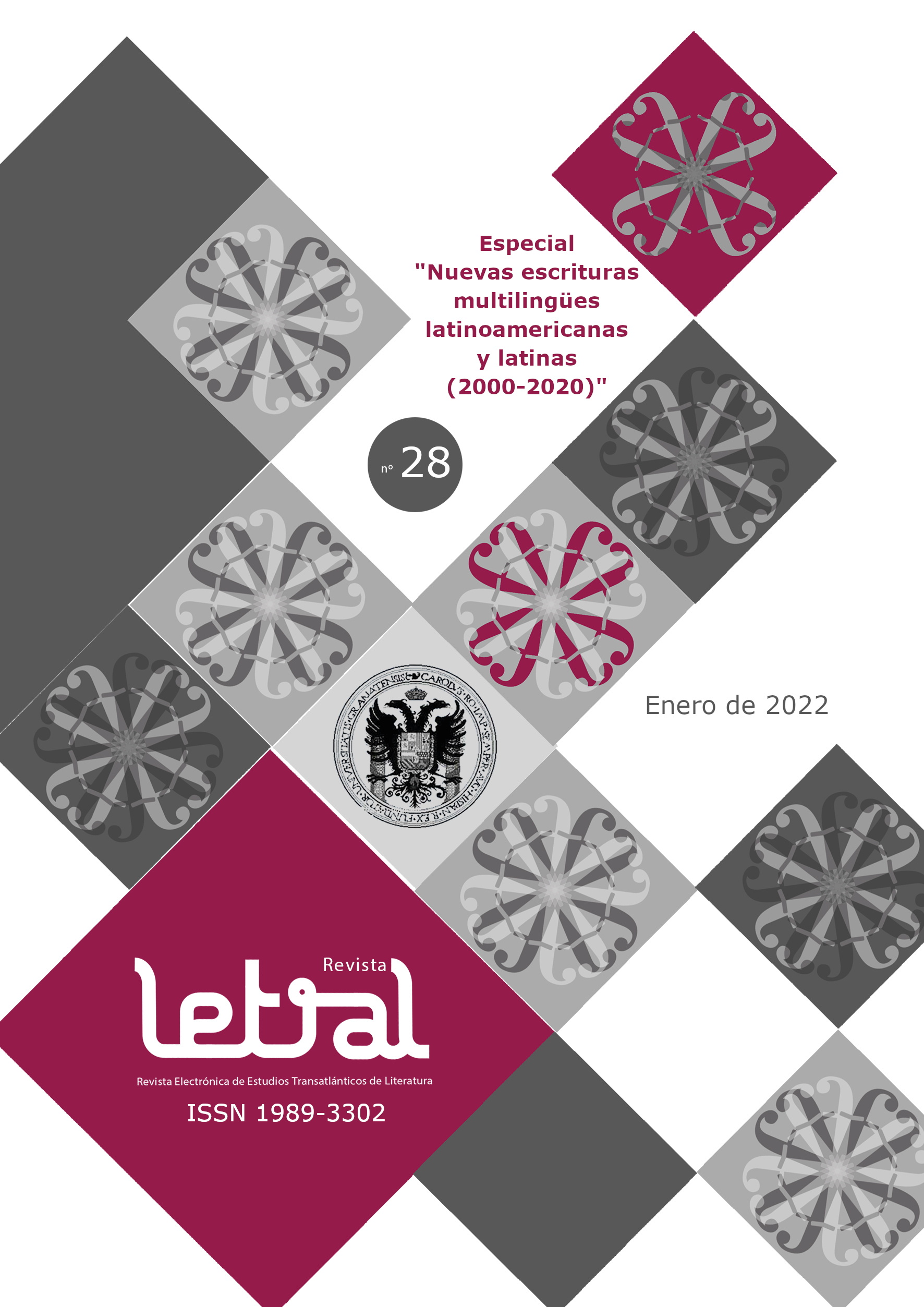Translating for the Translingual Reader: Productive Incongruences Between Three Versions of Tell me how it ends by Valeria Luiselli
DOI:
https://doi.org/10.30827/rl.vi28.21368Keywords:
literary translation, polyglot reader, trauma, migrationAbstract
Los niños perdidos (Un ensayo en cuarenta preguntas) is a self-translation by Valeria Luiselli from 2016. It is an extended version of a text that was originally published in English earlier that year. In 2017, Luiselli released a longer edition of the English text: Tell Me How It Ends: An Essay in Forty Questions. In this article, the three versions are compared, and the differences between them are seen as characteristic of the poetics of Luiselli’s work, because they, potentially, allow the translingual reader to access an interpretative layer that is not accessible to the monolingual reader. The incongruencies between the different versions can therefore be considered productive, since they reveal alternative narrative orders of a story that, because of its painful topic, is almost impossible to narrate. This way, the translation process reinforces one of the central themes of the work.
Downloads
References
Alvstad, Cecilia. “The Translation Pact”. Language and Literature, n.° 3, 23, 2014, pp. 270–284.
Alvstad, Cecilia. “Anthropology over Aesthetics: On the Poetics of Movement and Multilingualism in Three Translations of Yuri Herrera’s Señales que precederán al fin del mundo”. Literatura latinoamericana mundial: Dispositivos y disidencias, Gustavo Guerrero, Jorge J. Locane, Benjamin Loy, Gesine Müller (eds.), Berlín & Boston, Walter de Gruyter, 2020, pp. 223-241.
Byrkjeland, Bo. The Reinvention of the Original: The Self-Translations of María Luisa Bombal and Rosario Ferré. Tesis doctoral. Universidad de Bergen, 2013.
Chesterman, Andrew. Memes of Translation: The Spread of Ideas in Translation Theory. Ámsterdam, John Benjamins, 2016.
Fuentesberain, Úrsula. “Valeria Luiselli: Escribir desde el umbral”. Gatopardo, 02 de junio de 2016. Disponible en: https://gatopardo.com/revista/no-172-junio-2016/valeria-luiselli-perfil/ [consultado el 14 de febrero de 2021].
Lambert, José & Hendrik Van Gorp. “On Describing Translations”. The Manipulation of Literature. Studies in Literary Translation, Theo Hermans (ed.), Londres & Sydney, Croom Helm, 1985, pp. 42-52.
Laviosa-Braithwaite, Sara. “Universals of Translation.” Routledge Encyclopedia of Translation Studies, Mona Baker (ed.), Londres, Routledge, 2001, pp. 288–291.
Logie, Ilse. “Los niños perdidos, de Valeria Luiselli: el intérprete ante las vidas ‘dignas de duelo’”. Iberoamericana, n.° 75, 20, 2020, pp. 103–116.
Luiselli, Valeria. “Tell me How It Ends (An Essay in Forty Questions)”. Freeman's. Family: The Best New Writing on Family, John Freeman (ed.), Atlantic Books, 2016, pp. 96-123.
Luiselli, Valeria. Los niños perdidos (Un ensayo en cuarenta preguntas). Libro electrónico. Lector Cantook: acceso por la Biblioteca electrónica del Instituto Cervantes. Valeria Luiselli (trad.), México, Sexto Piso, 2016.
Luiselli, Valeria. Tell me How it Ends: An Essay in Forty Questions. Libro electrónico. Lizzy Davies y Valeria Luiselli (trads.), Minneapolis, Coffee House Press, 2017.
Luiselli, Valeria. Lost Children Archive. Libro electrónico. Londres, 4th Estate, 2019.
Luiselli, Valeria. Desierto sonoro, Daniel Saldaña y Valeria Luiselli (trads.), Nueva York, Vintage Español, 2019.
Schiavi, Giuliana. “There Is Always a Teller in a Tale”. Target, n.° 1, 8, 1996, pp. 1-21.
Scott, Clive. The Work of Literary Translation. Cambridge, Cambridge University Press, 2018.
Spivak, Gayatri Chakravorty. Outside in the Teaching Machine. Londres, Taylor & Francis Group, 2008.
Toury Gideon. Descriptive Translation Studies and Beyond. Ámsterdam, John Benjamins, 2012.
Downloads
Published
How to Cite
Issue
Section
License
Revista Letral is an open access journal under a Creative Commons Atribución-NoComercial 4.0 license.
The works published in this journal may be reused, distributed and publicly presented for non-commercial purposes, provided that: cite the authorship and the original source of the publication (journal, publisher and URL of the work).
We strongly recommended you to share our published articles in social and scientific networks, institutional and public repositories, personal or institutional websites, blogs, Google Scholar, ORCID, ResearchID, ScopusID, etc.
The journal allow the author(s) to hold the copyright and to retain publishing rights without restrictions.
We are completely free, both for readers and authors.














